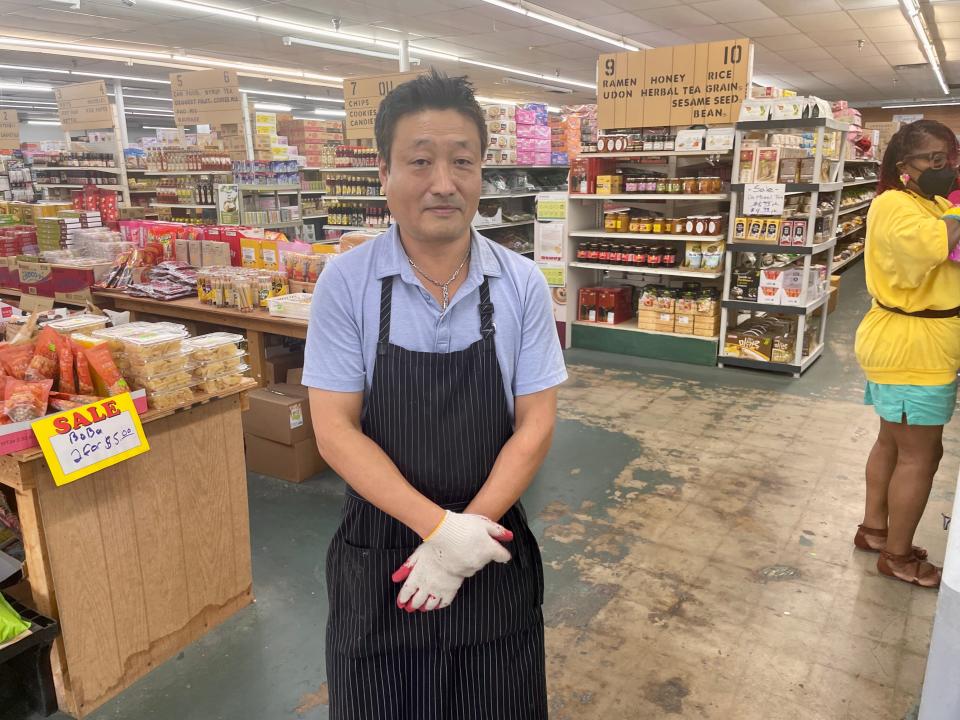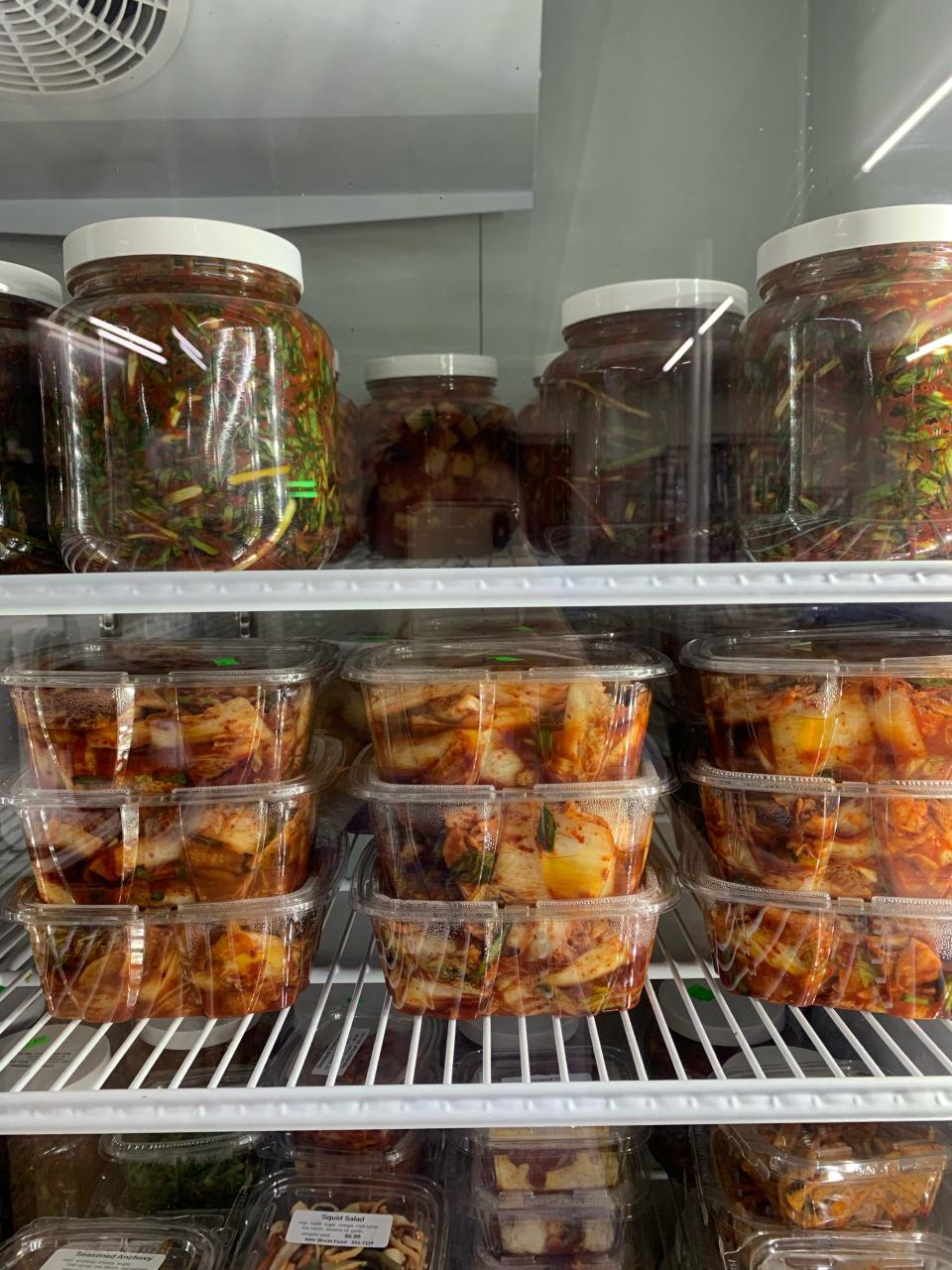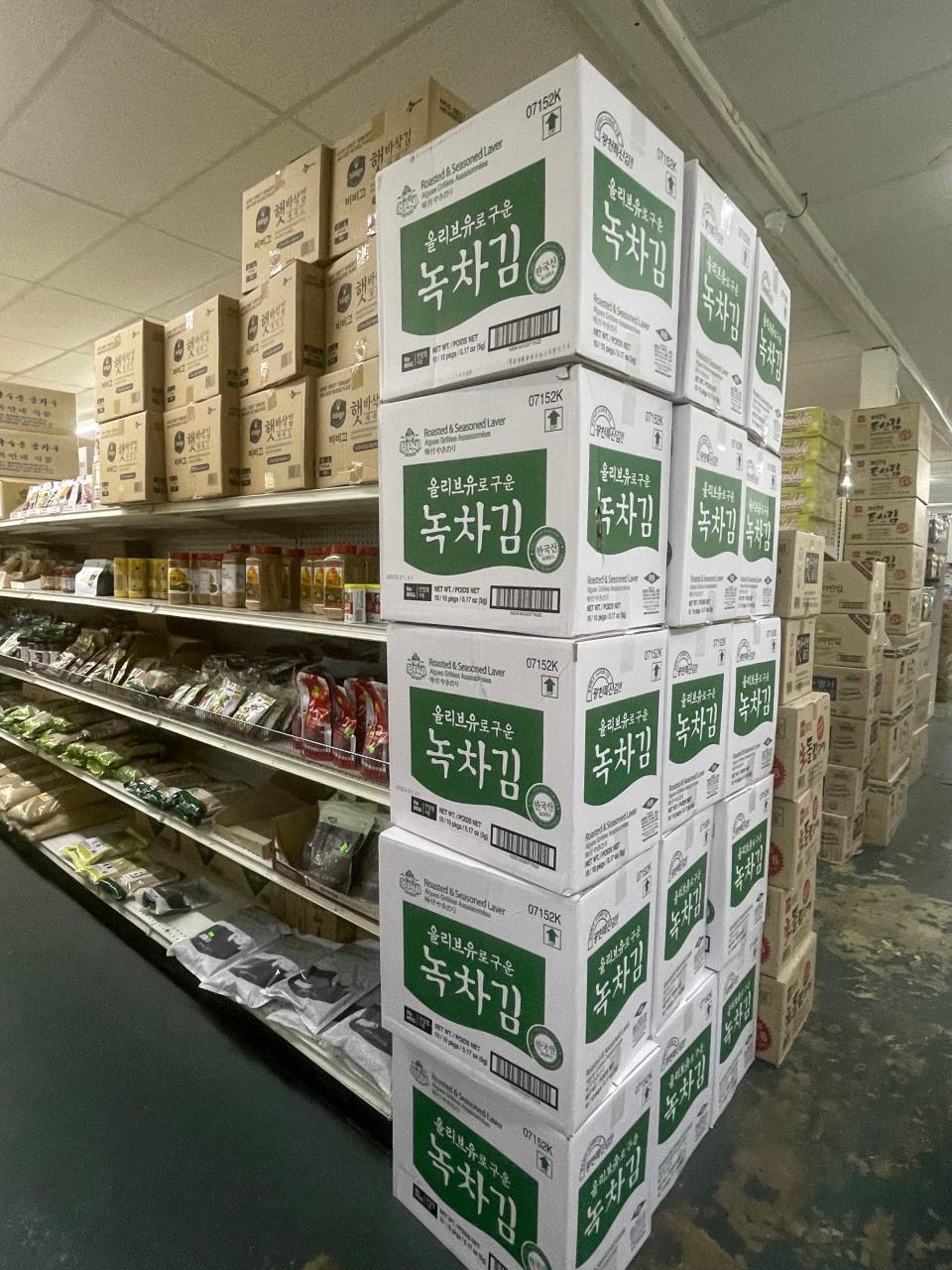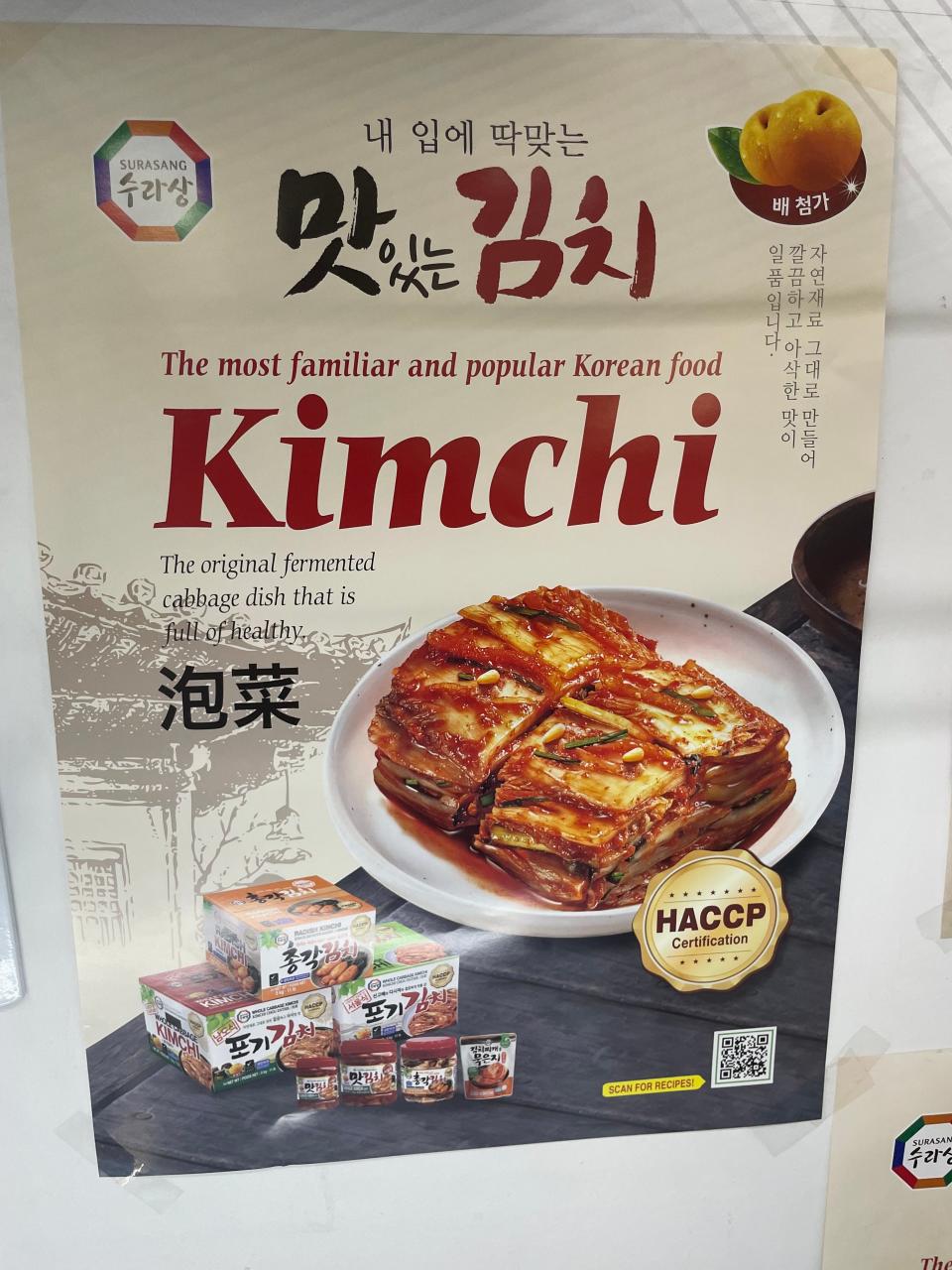No advertising required: New World Food Mart is mainstay for Asian cuisine in Jacksonville
Ethnic grocery stores have a built-in audience of people looking for food that’s often hard to find in traditional grocery stores. But that doesn’t guarantee sales volume.
For the last 15 years, New World Food Mart on Jacksonville's Southside has grown each year by about 5 percent. Even the pandemic didn’t change that steady annual sales increase.
Unlike major grocery store chains, this is a company that never advertises. John Lee, who owns the family business, said he never felt the need due to his less complicated strategy of generating natural discussions.
“We get new customers mainly by word of mouth,” Lee said. “We just try to treat customers right. Then they bring their friends or tell other people about us.”
All Florida Safety Institute: Driving school in Florida is back to growth mode | Marcia Pledger
Malone AirCharter: Private travel business in Jacksonville is flying high
Lee isn’t exactly the type of business owner who likes to brag, nor is he one that easily discloses challenges. But I learned that early on the 5161 Beach Blvd. store was struggling to stay in business. His parents purchased it from a previous owner and immediately changed just about everything, starting with the inventory.
While the majority of products are Korean, New World Food Mart also offers a large variety of food from other Asian countries including Japan, China and the Philippines.

For the first couple of years, Lee was still running his own restaurant in downtown Jacksonville called Koja Sushi.
“I was working at two jobs for a couple of years, both here and at my restaurant. It was a lot,” he said.
When his lease was up, he sold the restaurant and took over operations at the family’s grocery store working alongside his brother and sister.
About 90% of the business is groceries, but the company also has all sorts of kitchen products, as well as a small area for a restaurant that accepts cash only.
“The restaurant is really just meant to be a convenience for our customers who shop at lunchtime,” he said.

“We’re the only grocery store in Jacksonville that makes kimchi in-house along with Korean side dishes like pickled garlic stems, seasoned tofu, and seasoned fish cakes.”
Supply chain issues make ethnic foods harder to get
Grocery stores are generally solid business models, simply because everybody has to eat. Not many businesses have a huge chance for success due to guaranteed frequent customers.
Grocery businesses and funerals are among those industries. Still, all businesses have ups and downs. I reached out to Lee because while the pandemic has disrupted all sorts of industries, small businesses generally face challenges differently than corporate America, primarily due to finances.
The biggest challenge for Lee is getting certain products. When COVID-19 first hit, he told customers what wholesalers told him, whether something was expected in 10 days or longer. But so much has changed in the last two years, and it hasn’t gotten any better. Because so many items come from all over the world, it’s gotten worse.
Low on vital supplies: Stressed by the baby formula shortage? Here are 10 tips to know.
For instance, one customer favorite, “Natto,” a Japanese food made from soybeans was especially hard to find.
“I deal with eight wholesalers and nobody had it. A month later one of them got it in. Customers were so happy,” he said. “Even now it’s hard to get a lot of products, but customers are understanding and patient. You just have to be patient, because it could take a week or a month.”

Last year the National Grocers Association offered a statement to the Federal Trade Commission about the pandemic's effect on independent grocery store owners nationwide. They testified to the committee at an open meeting about how anti-competitive tactics by power buyers have hurt their members' businesses, customers, and communities.
In the meantime, Lee said what’s important is doing his best to engage with customers, even if he has no answers. He explains that wholesalers are scrambling to find new companies to compensate for similar products.
For instance, another popular item, a seafood mix that includes squid, clams and mussels, has been tough to get. Customers like to use it in stir fry meals or for soups.
“I used to be able to order that from five different companies, and now I’m down to one.”
“I tell customers if I can't get it, I don’t think anybody else can either. They know it, and they understand,” he said. “If I’m out of something, they’ll say, 'Hey, John, when is it coming in?' My answer: 'I don’t know.'”
Making their way back: New survey shows confidence from small businesses bouncing back from COVID-19 pandemic
It’s not easy for a company that takes pride in customer service to disappoint customers.
“If a customer tells me that they prefer another brand that they’re used to buying, what can I say except, I know…It’s just a waiting game.”
Fortunately, that’s not the experience for most customers. Lee said one big change in the last two years is that more customers than ever tell him they now cook at home more. Many started watching cooking videos when they were stuck at home.
Recent customer Jason Lee, not related to John, said he’s been shopping at the store since it opened 15 years ago. He cooks for himself a lot and generally goes to the store every other week.
‘I like shopping there because the people are very nice and helpful," he said. "If I have a question, they answer right away. It’s close to where I live and it’s very organized, and almost every time I go there they have everything I need. It’s a one-stop shop for me.”
Wholesale and shipping challenges
For years John Lee has spent a lot of time hearing about challenges from small wholesalers.
But since the pandemic started, their challenges increased. They’re not just having a hard time finding products from all across the world, they’re also facing major financial issues.
“To ship a container to the port used to cost about $5,000. Now costs range from $15,000 to $20,000,” he said. “One of the wholesalers that imported aloe drinks from Korea stopped because he was losing money. Now he sells cigars from Cuba.”
Diverse cultures in Jacksonville: Filipinos are city's largest immigrant group; often professionals in medical field
Lee said his vendors face major obstacles from food waiting at ports, to paying high costs of storage fees. Major wholesalers are not affected in the same way because of relationships with lots of vendors and their ability to buy in huge bulk quantities.
Chelsea Kavanagh, a spokeswoman at the Jacksonville Port Authority, said some of the supply chain challenges are expected to change in the future because of investments at the port.

“A modern deepwater seaport provides jobs and supply chain security for our community,” she said. “An efficient supply chain benefits businesses of all sizes, particularly small businesses that are most impacted by rising transportation costs."
From transportation challenges to a major Asian grocery store chain's plans to move to Jacksonville, Lee said there will always be obstacles, but he's focused on what he can control.
"No matter what, I believe that we will always have our regular customers, and we'll just keep doing what we do, focusing on quality food and customer service," he said.
Marcia Pledger is the opinion and engagement editor for The Florida Times-Union. She can be reached at mpledger@jacksonville.com.
This article originally appeared on Florida Times-Union: New World Food Mart in Jacksonville overcomes supply chain challenges

